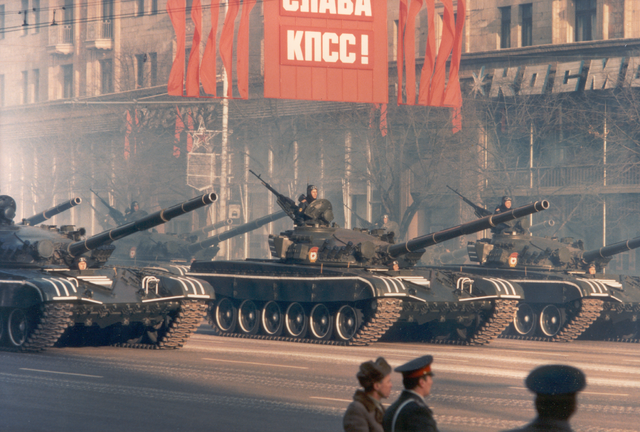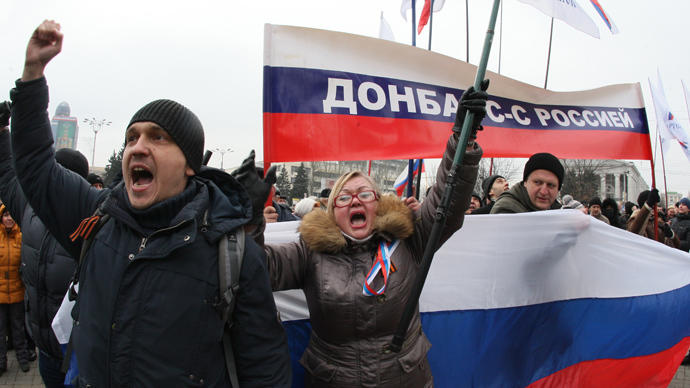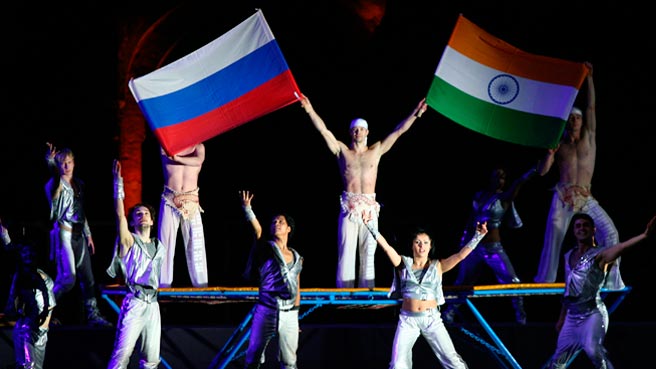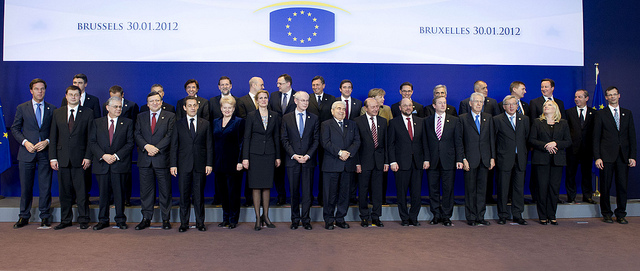Opinion
Democracy, Capitalism Loosening in Former Soviet Union, Union is Being Missed
All stats from pewglobal.org and images from englishrussia.com
Intellectuals of the early decades now tell the present days younger generation how another super power used to exist in this world parallel and side by side to the present day super power. A power that kept the imperialists in their limits. A multipolar world then was much better than now, where nobody is there to prevent the western superpowers from opening newer fronts.
If the socialist economy fell down in 1991, the capitalist economy is now falling down due to recession. On the one hand democratic countries like US, Russia, Greece and India are seeing various revolts and movements showcasing anger among the public for their government. On the other hand non democratic countries like Arab World and north Africa saw similar revolutions. Then which one is better? Non democratic like China, or Democratic like India?
Without putting us in this long and old debate, we analyse the situation in the three countries of former Soviet Union after 20 years: Lithuania, Ukraine and Russia, which adopted the democratic government.
A study by the Pew Research Center shows the result that after two decades of the collapse of USSR, the people in Russia, Ukraine and Lithuania are unhappy with the direction in which their country is going. Energy, Enthusiasm which was on top of of everyone after the collapse for the democracy and rights has now waned considerably in last two decades. While many believe that the changes which their country underwent all these years have done nothing good but given a negative impact to public morality, economy and law and order and standard of living.
Democracy and Capitalism
 |
| Source: pewglobal.org |
Russia, in the name of democracy has hardly enjoyed any benefits, as a stronger opposition lacks in the country which can give tough competition to powerful Putin. Ukraine has seen bad politics, interference by western diplomacy and colour revolution, whereas Lithuania, unlike Russia and Ukraine believe that changes in past 20 years have done good for them. 49% of the people are satisfied with the changes while 30% says no.
Despite the belief that capitalist economy is better than socialist only 42% of the Russians now approve a change to market economy, just before the collapse of Soviet Union in 1991 the count was 54%. The change of 11% fall. In Lithuania 76% used to approve in 1991 whereas now only 45%, In Ukraine this has slipped to 34% from 54%.
Who is benefited?
 |
| Source: pewglobal.org |
There is a general feeling among these countries that the only benefit during these two decades were enjoyed by politicians and business elites, whereas common people were left behind, unlike Soviet Union where everybody was considered equal. The only thing which people like about democracy in their country is the improved judiciary and free media.
The transparency in the coverage of Moscow protests by Russian media is indeed a colour of democracy. Public is able to protest freely against their own government is democracy unlike Arab world where military was ordered to attack their own civilians. The public might be protesting against Putin as they don’t want him or his party yet again for another 4 or 8 years, but still if we look at the stats in 1991 just before the former Soviet Union was officially dissolved, there was a general optimism among the public for a change towards a multiparty system.
Change to a Multiparty System can Solve the problems?
Almost 61% of Russians then believed a change to multiparty system will be good for their society, now that belief has shrunk to 50%. Similarly, in Lithuania the count was 75% back in 1991, now only 52%. In Ukraine the optimism has slipped from 72% to 35%, but it is true that in all the three surveyed countries, the youth, the well educated class and the urban population only supports the change to multiparty system.
 |
| Source: pewglobal.org |
Vladimir Putin has all the qualities of a strong leader, who has transformed the broken Russia into a powerful economy within past 12 years. He has brought back the respect to Russia which was lost after the break up of Soviet Union. Russia now is now leading in race to become a military as well as economy super power. Unlike strong leader of Arab world, Vladimir Putin is far more democratic also. Despite the protest against him, only 32% of Russian feel that they need a democratic form of government compared to 51% in 1991. When asked whether they should rely on democratic leader or strong ruler to solve their national problems only 3 in 10 Russians and Ukrainians chose democracy, whereas in Lithuania 52% prefer democratic leader now compared to 79% back in 1991.
When asked whether people are happy with the current state of democracy in the country, a large number of the people in all these three countries showed dissatisfaction with the present state of democracy and how it is working in their country when compared to the results in 1991. Moreover, in Lithuania and Ukraine this belief has only changed only in past two years. According to the survey by Pew Global in 2009, 60% of Lithuanians said they were dissatisfied now this feeling has spread to 72%. In Ukraine the same unhappiness has risen from 70% to 81%.
Just when the world lost confidence in socialist economy after the collapse of Soviet Union, these three countries lost the confidence in capitalist economy after the recession. 76% of Lithuanians were optimistic about switching to a market economy in 1991, now only 45% feel the same way. Among Ukrainians, optimism fell from 52% in 1991 to 34% after 20 years. Although, 42% of Russians currently endorse the free market approach, a 12-percentage-point drop since 1991, eight points of which occurred in just the last two years during recession.
Slipping confidence in the capitalism is due to the reason that the people don’t feel that their country is doing good in economy. In all the countries those who have not seen the life in Soviet Union or were too young when the giant collapsed are only the people who support capitalism and democracy.
Russians Missing the Soviet Union
 |
| Source: pewglobal.org |
There is a feeling among majority of Russians that Soviet Union was a great place to live. According to the survey by pewglobal more than half of the
Russians believe that it is a great misfortune that Soviet Union now no longer exists. While only 36% disagree to this belief.
US and Russia who is better?
When asked about the influence of these countries whether positive or negative on Ukraine, Russia and Lithuania. The results were not very shocking. Majority of the people support Russia and Russian cause and its foreign policy rather than going the western way. While US enjoys positive influence on Lithuania with 73% of Lithuanians considering US as favourable and 20% considering it as unfavourable, Russia enjoys positive influence in Ukraine with 84% Ukrainians considering Russia as favourable and only 11% considering it as unfavourable
Views of European Union and NATO
 |
| Source: pewglobal.org |
All the three countries surveyed considers EU important for economy and development and hence EU enjoys positive views, whereas NATO is considered as America’s military expansion towards these countries rather than a security network. Lithuania being involved in EU and being a member of NATO gives plus points to both the organization.
While 49% of Lithuanians think joining EU is a good thing, 31% doesn’t find any change, whereas 8% feel it is not a good thing. Lithuania being a member of NATO also backs the idea of Ukraine joining the security group. Whereas 72% in Russia and 51% in Ukraine oppose Ukraine joining NATO.
 |
| Source: pewglobal.org |
It is true since the day the Soviet Union fell down, democracy ended in the world. After the collapse of Soviet Union we have seen more wars on small countries than ever before. But it is true as well that the world was on the brink of a real big war which could have turned into a nuclear war when both the super powers existed side by side.
The time when US is understanding that soon its supremacy could be taken over by Asian giants, US is welcoming warmer ties with as many countries possible. At this time rise of Russia, which is more open and transparent than before along with China, Europe and possibly India and Japan will lead us towards a multipolar world. Which would be more complex but peaceful.
Please share and join the discussion on facebook by clicking the “Like” below.
China
Nepal Hindu Rashtra: Time to Wrap Up Communism?

Nepal abolished the Constitutional Monarchy in May 2008 and declared itself as a Federal Democratic Republic. There was a new hope in Nepal as it was becoming world’s newest democracy even though it had dissolved the Hindu Rashtra. However, the democracy in Nepal immediately got into the tight grips of leftists and communists backed by China. It has been almost 12 years since monarchy was abolished in Nepal. Interestingly, the Himalayan country has already seen 11 Prime Ministers in this period. Thus, leaving the Nepalese people still yearning for good and stable governance.
Re-establish Hindu Rashtra
As the political instability is growing in Nepal, people are demonstrating concerns about the future of the country. In fact, Nepalese citizens are unhappy with frequent interference by China and India influencing its unstable communist regime. More voices are now growing in support of reinstating the Monarchy and declaring Nepal as world’s only Hindu Rashtra (which by default offers full religious freedom to other religious minorities as per Hindutva concept of Sarva Dharma Sama Bhava – all paths lead to one).
Former Deputy Prime Minister of Nepal, Kamal Thapa said that if political parties do not recognize the seriousness of reinstating the monarchy, then the country will head for a period of darkness. “Recently, we’ve had high-ranking officials from India and China come to Nepal to try and solve problems within the ruling party,” he said. “We cannot let others dictate what we want to do.”
Communist Party All Set to Suppress Protests, By Force
Kamal Thapa has firmly demanded an all party meet to discuss reinstating of monarchy. Throughout the month of December, 2020 Nepal has seen anti communism protests across the country in support of reinstating the monarchy and Hindu Rashtra. Most importantly, the demand has become a nationwide mass people’s movement. So much so that the communist regime had to send a directive to 77 districts in 7 provinces. The directive suggests suppressing the protests by force. Nevertheless, Rashtriya Prajatantra Party and other royalist groups have ignored this threat from the communist regime. Protester groups have pledged to strengthen the protest in the coming weeks.
Nepal: Demonstration held in capital Kathmandu, demanding restoration of monarchy in the country. pic.twitter.com/TFjmKu9U9Z
— ANI (@ANI) December 5, 2020
Role of China – Hope for Communism in Nepal
China’s ambassador to Nepal is known to have very close relationship with Nepalese Communist regime. In fact, She has been super effective in tilting Nepal’s posture towards its ideological partner, China. One of her greatest achievements in 2020 was artificially manufacturing a border conflict between Nepal and India. Consequently, souring relations between the two Hindu majority nations. In addition, she managed to silence Nepal’s communist government after China took one of Nepal’s border villages under its control. However, recent political turmoil in Nepal and a renewed demand for reinstating of Hindu Monarchy is showing that the situation is now out of Chinese hands
Role of India
Year 2020, was not a good year for India and Nepal relations. India was busy in controlling domestic Covid cases. On the other hand, China had launched an invasive campaign into Indian territory. In addition, India is always busy with Pakistan on its western borders. However, the surprise came to India when China was almost successful in creating a new border tension between India and Nepal.
Those who do not know about Indian government should note that the current ruling party in India finds itself ideologically opposite to communism. This further creates differences between the two countries.
Communist party in Nepal has blamed India for supporting the ongoing anti communism protests in Nepal. However, former advisor to Nepal’s PM has suggested there is no proof that India is fueling pro Monarchy, anti communism demand in Nepal.
Nevertheless, There are certain influencers in India who have, in their personal capacity, expressed support for reinstating the Hindu monarchy. Yogi Adityanath, who is the Chief Minister of an Indian state bordering Nepal, said in 2015 that Nepal should declare itself a Hindu Monarchy. Readers should note that in 2015 Yogi Adityanath was not the Chief Minister yet. However, today he is not only popular in south of Nepal, his popularity is growing in Nepal as well.
Will The World See the first Hindu Rashtra?
It is difficult to answer this question at this moment. However, Nepalese communist government could not resolve the political instability and in December 2020 Nepalese government dissolved the parliament. Nepal will see next elections in April – May 2021. Hopefully, the world will see Nepal’s 12th Prime Minister in 13 years or may be a Hindu King? Royalists and protester groups have expressed confidence in winning next elections. We have our eyes on Nepal for updates.
Opinion
America’s Justice System – The Need For Reform
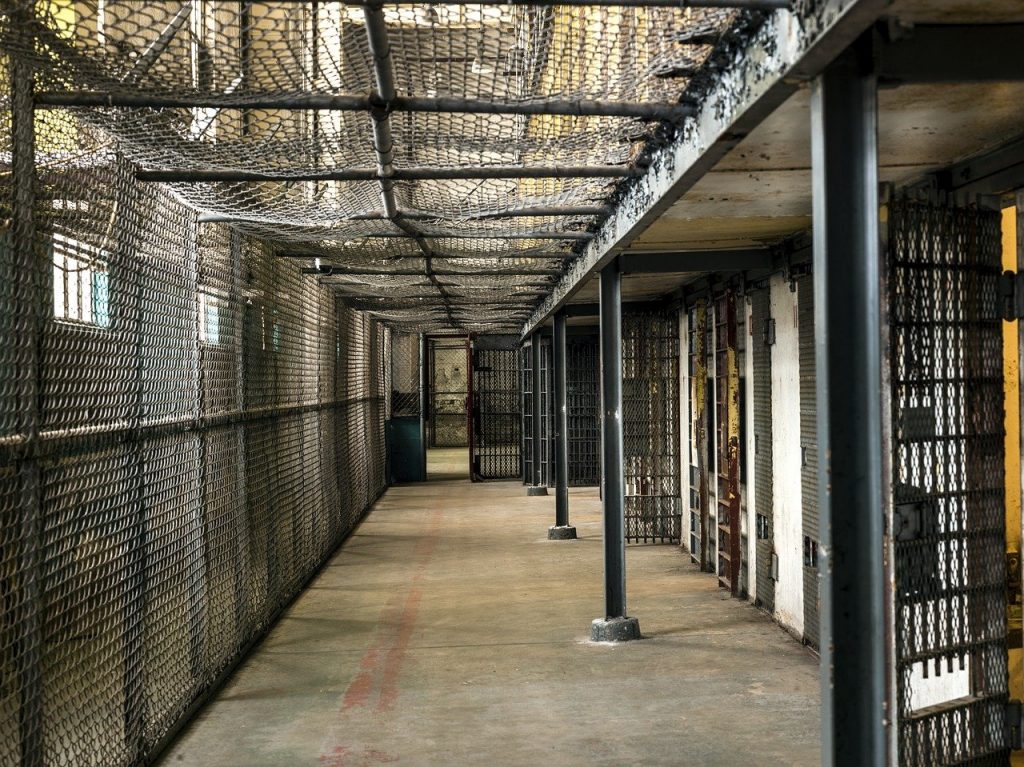
A recent poll by the National Opinion Research Centre revealed that 95% of Americans favour vital criminal justice reforms. This is hardly surprising, given that several people of varying racial, partisan and ideological dispositions have called out the justice system over its many failures throughout the years. Most Americans received the Trump Administration’s First Step Act as a step in the right direction, as about 60% of people approved the criminal justice reform bill according to a 2018 poll. However, many people still believe the justice system’s approach to crime is ineffective and needs dire change, and these are some reasons why.
Prison population and funding concerns
Research conducted revealed America has about 2.3 million prisoners, making the US the country with the highest incarceration rate globally. Experts estimate that the country’s prison population has grown by a whopping 340% over the past three decades; new prisoner admissions into jails are higher than prisoner release numbers. The cost of maintaining the nation’s prisons at taxpayers’ expense has inspired a lot of backlash and calls for budget cuts. According to research, slashed correction spending was the preferred option by most states to balance their budgets and redirect spending to other areas.
Minimum mandatory sentences
Minimum mandatory sentences are statutes that force judges to give defendants convicted of a crime the minimum prison sentence. Mandatory sentences rob judges of the traditional way of considering the defendant’s character and the unique circumstances surrounding offences. Even when represented by criminal defense attorneys with many years’ experience, defendants often succumb to prosecutors’ pressure to plead guilty or face more severe charges with higher mandatory sentences. The guilty plea bargain consequently resolves about 95% of both federal and state court cases. Research also shows that about half of inmates in federal prisons are doing time for drug offences- causing overpopulation in the prison system.
Growing number of people killed by the police
An estimated 1000 civilians are killed by police officers annually in the US. The frequency of police brutality cases over the years requires immediate reform to the American justice system. Data suggests that the incidence of fatal police shootings is higher among African-Americans than any other ethnicity, inspiring movements like the ‘Black Lives Matter’ campaign to press on with protests for significant police etiquette reforms towards coloured minorities. The police force faces incessant accusations of racial profiling, indiscriminate use of power, and poor discretion, which has led a reported 58% of Americans to think policing needs major reforms through measures like better-trained officers, and wearing body cameras.
Evolving public opinion on crime
Research released by the Sentencing Project and The Justice Policy Institute reveals that more people in conservative states are embracing preventive, rehabilitative, and alternative sentencing options for non-violent offenders. Most Americans now view the prevention of crime as the most vital function of the justice system, as 77% of Americans think that focusing more on character education and after-school programs would be cost-effective by reducing the number of people going to jail. Almost two-thirds of Americans also believe in the need for lighter sentences with more useful, reformative programs in prisons that will benefit inmates upon release. Therefore, support for harsh penalties that harden criminals and make them a more significant menace when reintroduced into society has dwindled.
Opinion
The History Question: Is It Better to Remember or to Forget?
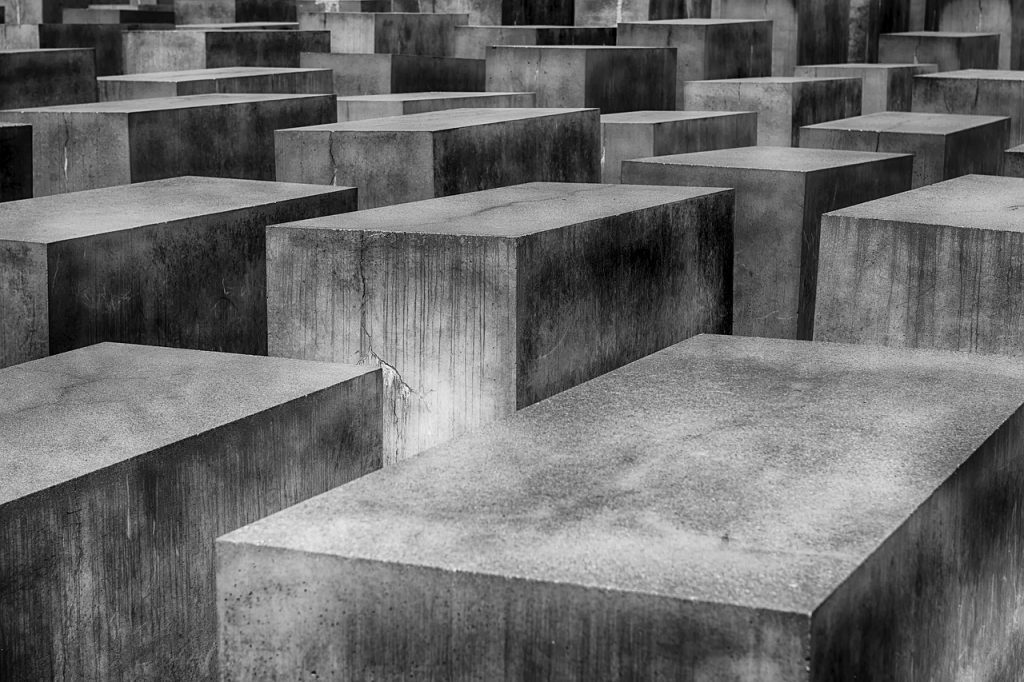
Years ago, a philosopher by the name of George Santayana said a phrase that fuels many debates to this day. His original saying is “those who cannot remember the past are condemned to repeat it”, although, many sources now present it as variations of “those who cannot learn from history are doomed to repeat it”. The latter definitely has more substance to it in the light of the ongoing debate about how much history we should be learning and how.
Is It Better to Remember or Forget About the Past?
On one hand, Santayana was right. Learning about the past is essential in order for people to progress. One also shouldn’t overlook the importance of remembrance and paying respects to the dead, both those who pushed the progress forward and those who have fallen victims to major tragedies that could and should have been averted.
The main argument in favor of learning about the past is that its knowledge is necessary for preventing the same thing happening in the future. Having it one can see the signs and stop the tragedy before it gains momentum.
That’s sound in theory, but the reality is always different. For example, today people are surely forgetting, and the much-critiqued education system is only partially at fault here. Even the greatest of tragedies weren’t spared this fate. It’s a proven fact that about two-thirds of millennials today don’t know about the Holocaust, and this number is surely greater for generations that follow them. In the school history course, the subject of one of the greatest disasters in history is barely touched, if touched at all. And outside of a history classroom, one can only see small, but terrifying, glimpses of it at the Holocaust Museum and other museums that rarely attract many visitors. And now we are witnessing a rise of antisemitic crime.
Are these two facts related? Does the lack of awareness about the horrors done in the name of Aryan supremacy contribute to the fact that right-winged extremists seem to be gaining popularity again?
It does, but by how much? That is the question that no one can truly answer.
And what about other genocides? The Holocaust had the highest death toll, but it was far from the only genocide in history. And quite a few of those happened after World War 2 and before the memory of the atrocities against the Jews began to fade. This means that while forgetting history is a factor, it’s not the deciding factor in its repeats.
But what is that thing responsible for the reenactment of past mistakes and tragedies?
Learning. This is the important thing that is most often overlooked when citing Santayana’s famous saying. It’s not enough to learn about the past and know the facts of things that happened. It’s important to learn from those facts and put in place protections that will prevent them from happening again. And this is something that humanity, as a whole, has yet to succeed in doing.
Dwelling in the Past Can Be Just As Bad
One also shouldn’t forget that there is such a thing as “too much history”. The Bosnian War and genocide that happened there in the 1990s is a vivid example of how the past can be exploited by political powers. Used as a part of propaganda, which fueled the war, history can become a weapon in the hands of those who want to use it for their own goals.
And this is what humans have been doing since the dawn of time. There is always someone who will use any means necessary to achieve whatever it is they wish. This results in wars and genocides, and hundreds of smaller but no less devastating tragedies.
Therefore, the problem isn’t whether people should be learning history but human nature itself. Perhaps, teaching this can help fix this fundamental flaw and truly stop the worst of the past from repeating.
-

 Business12 months ago
Business12 months agoHow To Future-Proof Your Business With The Right Tools
-

 Travel10 months ago
Travel10 months agoTravelling from San Antonio to Guadalajara
-

 Travel7 months ago
Travel7 months agoTravel wellness tips for a healthier and more enjoyable journey
-

 Europe6 months ago
Europe6 months agoRecent Books by Boaventura de Sousa Santos: Law, Colonialism, and the Future of Europe










